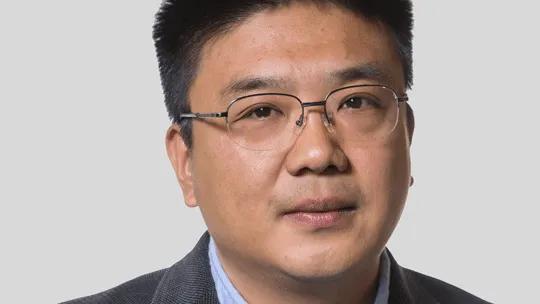Cancer researcher Guangwen Ren appointed assistant professor at JAX
Article | June 9, 2016Guangwen “Gary” Ren, Ph.D., who studies cancer therapy resistance and metastatic relapse, will joinThe Jackson Laboratory (JAX) faculty as an assistant professor in October.
“Cancer research is one of the most challenging research fields with quite a lot of unsolved questions,” Ren says. “Therapy resistance and metastasis, which are regarded as major causes of mortality of cancer patients, are the most difficult aspects of cancer research.”

Ren will study how the tumor microenvironment – particularly the tumor stroma – regulates cancer therapy resistance and metastatic relapse. Tumor stroma is the connective tissue that provides physical support for tumors. It also contains various cell types that can release substances that promote tumor growth and development. Therefore, tumor stroma is a major therapeutic target for cancer researchers such as Ren.
“It’s critical to develop clinically applicable strategies to improve treatment efficacy and prevent metastatic relapse of cancer patients by interfering with tumor stroma,” he says.
JAX’s “humanized” mice and patient-derived xenograft (PDX) mice are unique resources that will benefit his research, Ren says. Humanized mice are engineered to tolerate the engraftment of functioning human cells, tissues or organs, and PDX mice are capable of sustaining implanted human tumors from cancer patients. Both mouse models allow scientists to experiment with human cancers in a living organism in ways not possible with human subjects.
“The key reason for me to choose JAX is the truly exceptional academic environment at JAX, including the very talented people, the unparalleled mouse resources and the exceptional facilities,” Ren says.
Ren comes to JAX from Princeton University’s Department of Molecular Biology, where he is an associate research scholar. A native of Shandong province in China, Ren earned bachelor’s and master’s degrees in microbiology from Shandong University in Jinan. He received a Ph.D. in immunology from Rutgers University and completed a postdoctoral fellowship there before going to Princeton for a postdoctoral fellowship and his current position.
Ren says he dedicated himself to cancer research after his father and grandfather died of cancer when he was in high school. “The tragedies plunged me into deep sorrow for a long period of time,” he says. “When accompanying my father for his last days at the cancer center in my hometown in China, I witnessed hundreds of hopeless people there, especially many young children, who shocked me most. Those despairing eyes deeply imprinted on my brain, which highly motivated my later career. From then on, I made up my mind to devote my whole life to eliminate cancer.”
